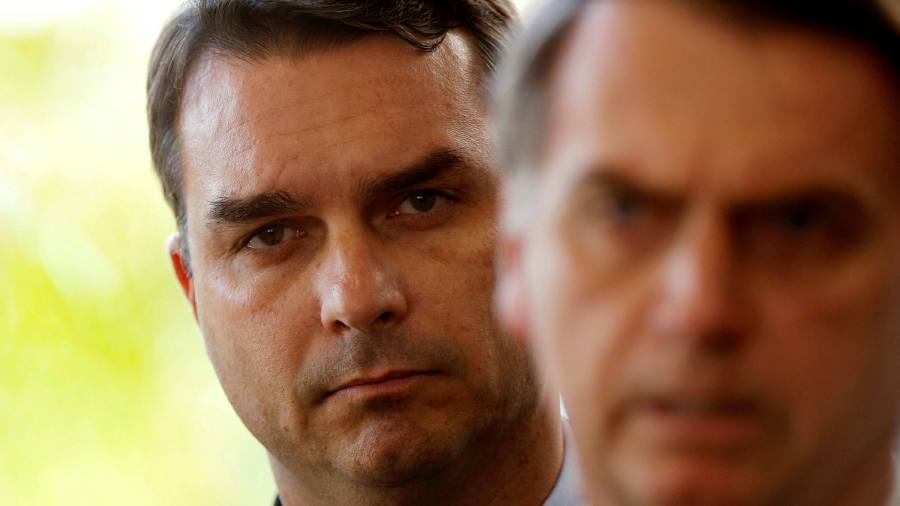[ad_1]
Brazil risks regressing decades in its fight against corruption if nothing is done to counter the growing confluence of forces opposing anti-graft efforts, the former head of the nation’s long-running Car Wash investigation has warned.
“Corrupt politicians have recovered their power and political forces are today aligned against anti-corruption efforts in Brazil,†Deltan Dallagnol, the prominent prosecutor who for six years led the probe known locally as Lava Jato, told the Financial Times.
“If Brazilians do not wake up, we will have gone back 30 years in anti-corruption efforts before we realise it.â€
Named after a car wash used to launder money in BrasÃlia, the investigation began in 2014 and expanded rapidly after task forces uncovered a vast contracts-for-kickbacks scheme involving oil group Petrobras, a group of construction companies and scores of prominent politicians. The resulting prosecutions were considered a watershed moment for Brazil, where the ruling elite had long enjoyed impunity for their excesses.
The probe, however, was wound down last month following pressure from parts of Congress as well as the administration of rightwing President Jair Bolsonaro, whose son, Flavio, is under investigation for graft in a separate case.
The legacy of the Car Wash probe is now in jeopardy following surprise moves from two judges on Brazil’s supreme court. Earlier this month, Edson Fachin annulled the graft convictions of former Brazilian president Luiz Inácio Lula da Silva — the most senior politician convicted in the investigation — on the grounds that the court in Curitiba did not have appropriate jurisdiction.
A day later, judge Gilmar Mendes opened a long-dormant inquiry into whether Sergio Moro, the judge presiding over the Car Wash cases, had colluded with prosecutors — including Dallagnol — on the best methods to rack up convictions. Text messages leaked in 2019 appeared to show the judge and prosecutor communicating closely on Lula’s case and other issues.
“With what was happening in Curitiba, we could have soon had a dictatorship designed by a judge and some prosecutors,†said Mendes, long one the court’s staunchest opponents of Lava Jato.
While Mendes’s inquiry is continuing and Fachin’s ruling will be examined by the full bench of the supreme court, the actions of both judges look certain to cast a long shadow over anti-corruption efforts in Brazil.
“If Mendes judges that Moro was biased, that could have significant consequences for many of the Lava Jato trials,†said Geert Aalbers, an expert on Brazilian corruption at Control Risks in São Paulo.
“It could mean the annulment of cases not just for Lula but many others. In what it represents, it would reverse or undo much of what the investigation achieved.â€
The judicial developments were hailed by the Centrão, a powerful political bloc allied to President Bolsonaro that was the target of multiple investigations in the Car Wash probe.
“The misconduct of the Lava Jato teams must be combated. The fight against corruption is strengthened when it resumes the path of legality and respect for due process of the law,†said Marcelo Ramos, a federal lawmaker and key powerbroker in the bloc.
Prosecutors and independent analysts, however, argue that the forces opposing anti-graft efforts are merely trying to shield themselves and get back to business as usual in a country that ranks among the most corrupt.
“After the strongest anti-corruption action in Brazilian system, we are seeing a strong reaction,†said Dallagnol.
“This is a consequence of the fact that our political system is rotten and that the judicial system will never be above the political system.â€
Carlos Fernando dos Santos Lima, a former prosecutor on the Lava Jato task force, said there were “groups within Congress, and even within the Supreme Court, who wish to take revenge for what happened in the investigation in recent years. It is real persecution.â€
Bolsonaro won the presidency in 2018 on the back of campaign promises to rid Brazil of the systemic corruption uncovered in the Car Wash probe. With his son under investigation, however, the populist leader has remained mostly silent on the issue. His attorney-general, however, was last year a driving force behind the closure of the Lava Jato task forces.
Alarmed by the apparent regression in anti-graft efforts, the Organisation for Economic Cooperation and Development last week announced that it had set up a permanent monitoring group to track corruption in Brazil — one of the few times it has ever taken such a step.
“Brazil was positioned a few years back as an anti-corruption champion. It was seen and praised by the OECD as a country where things were happening. And not only by the OECD,†said Raquel Pimenta, a law professor at the Getúlio Vargas Foundation in São Paulo.
“And now there is a monitoring group just for Brazil? Has Brazil’s image internationally deteriorated so much that the cost of imposing such monitoring is not even that high?â€
Under Bolsonaro, Brazil has lobbied hard for admission into the group of mostly rich countries — a prospect that now looks unlikely.
Aalbers said that while the commitment to anti-graft efforts was waning in Brazil, the outlook was not completely bleak. Prosecutors remained fiercely independent and companies were increasingly preoccupied by compliance given the growing popularity of ESG investing.
“If we are trying to find a direction that anti-corruption efforts are moving, it is definitely backwards. But it also important to note there are some pillars in places that may have been shaken but are still standing.â€
Additional reporting by Carolina Pulice
[ad_2]
Source link







